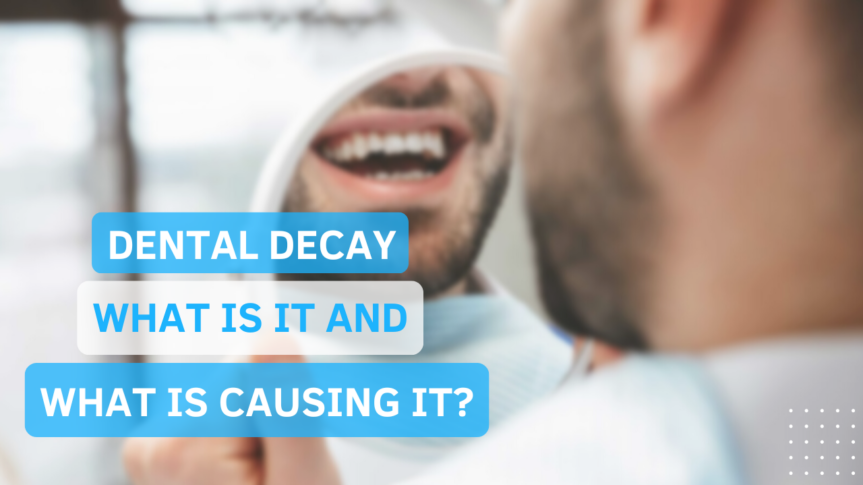Dental caries is a progressive condition that affects the hard tissues of the teeth and is prompted by the action of bacteria that accumulate and form dental plaque.
If not treated promptly, it can cause pulp necrosis and lead to the formation of an abscess at the root tip of the tooth, ultimately requiring endodontic treatment or extraction.
How Dental Caries Develops:
Dental caries affects the teeth by creating small cavities – holes as a result of demineralization of dental tissue (enamel and dentin) by bacteria.
Demineralization of the tooth is a process in which various vital substances are gradually removed from the tooth, such as calcium. This occurs with continuous and prolonged exposure of the teeth to certain acids. These acids are produced by specific bacteria that live in our mouth, specifically on our teeth (dental plaque).
The bacteria that cause dental caries feed on sugars (glucose, sucrose, fructose, lactose, or cooked starches) found on our teeth, and the byproducts of their metabolism cause demineralization of the tooth.
Causes:
Analyzing the causes of dental caries, we identified dental plaque and sugars as the main factors for creating a dangerously acidic environment in the mouth. However, neither dental plaque nor sugars would cause problems in our mouths if we didn’t allow them to be there.
The main reasons this happens and the actual cause of dental caries are poor oral hygiene combined with a diet rich in carbohydrates.
By eliminating these two causes, the risk of dental caries is minimized.
By combining proper daily oral hygiene with careful dietary habits and controlling carbohydrate consumption, we can eliminate the main causes of dental caries, providing a safer environment for our teeth.
However, let’s analyze the causes separately:
Dental Plaque:
We have already mentioned that dental plaque is a layer of bacteria that “adheres” to the surface of the teeth. It is considered the primary cause of dental caries. Bacteria begin to accumulate on the teeth a few minutes after each tooth brushing, using the sugars in food as a food source, and producing acids that begin to “eat away” at the enamel.
Sugars:
The main reason sugars are considered suspect for the development of dental caries in teeth is because they serve as a “food” for the bacteria in the oral cavity. Bacteria use sugars, such as glucose, sucrose, fructose, and lactose, found in the foods we consume. If we didn’t have sugar in our diet, plaque bacteria wouldn’t be able to cause much damage. Then, these bacteria produce acids as byproducts of their metabolism, which, as mentioned above, cause demineralization of the teeth.
Acids:
The enamel of the teeth is the hardest tissue in the human body. However, its inorganic structure makes it vulnerable to the action of acids, which can destroy it relatively easily. When the environment in the mouth becomes too acidic (when the pH value, which measures acidity, drops below 5.5 to 6.0), acids begin to dissolve the inorganic calcium phosphate salts that make up the enamel of the teeth. Any part of the tooth that is exposed to the oral environment is at risk from the action of acids. What starts as mild demineralization with the presence of a small white spot on the tooth surface, if left untreated, will progress to dental cavities, and the tooth will require filling.
Athina Tsiorva


